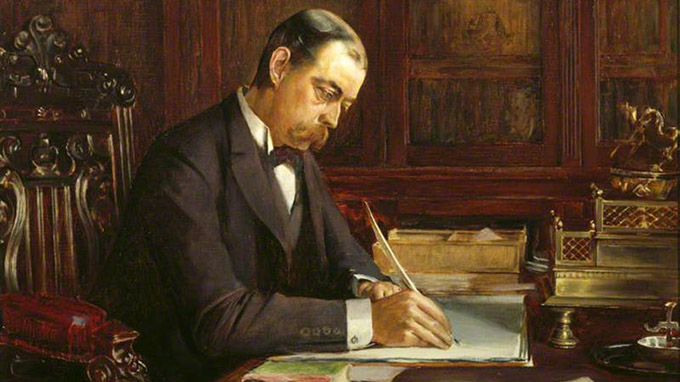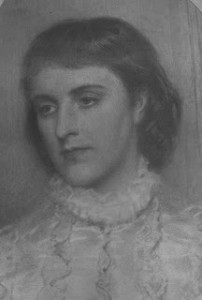
Lord Randolph and the Aylesford Sports
I have two questions. When Lord Randolph Churchill was banished to Ireland in 1876, after the Aylesford incident, did he remain a Member of the House of Commons? And what were the rules in regard to a Peer of the Realm being a Member of the Commons? Since Randolph was elected to the House in 1874 I assume he could serve. On the other hand, when in May 1940 the question was whether Lord Halifax or Winston Churchill would become Prime Minister, Halifax demurred on the grounds that as a Lord he couldn’t be a member of Commons and that would would hamper him as Prime Minister. —S.N.
Protocol and Practice
Exile in Ireland

The uproar was over Randolph’s brother the Marquess of Blandford‘s affair with Edith, Countess of Aylesford, wife of the 7th Earl of Ayelsford, aka “Sporting Joe.” It would appear Lady Edith was equally sporting. She wished to divorce the Earl and elope with Blandford, with whom she had conducted a torrid love affair. Hearing of this, HRH the Prince of Wales (later King Edward VII) condemned Blandford as “the greatest blackguard alive.” Springing to his brother’s defense, Randolph threatened to reveal HRH’s own indiscretions with Lady Edith, whereupon HRH said he would appear in no place where Lord Randolph was present–effectively ostracizing Winston Churchill’s parents from London Society.
Aylesford Redux
“Sporting Joe” emigrated to Texas where he bought a cattle ranch and died of drink and dropsy aged only 36. Lady Edith went on to further sport, but not with Blandford. A movie could be made. Ah, the Victorians.







One thought on “Lord Randolph and the Aylesford Sports”
I learned very late in life that my great aunt known then as Lady Alexandra Emmet,nee Finch, born in 1875, had had such parents as the Earl and Countess of Aylesford. I later came to trace the son her mother Edith had by the Marquis of Blanford in Paris in 1881 and found he made his own way as a man known as Guy Bertrand Spencer, mainly as a smallholder in the Home Counties and although married never sired any children.